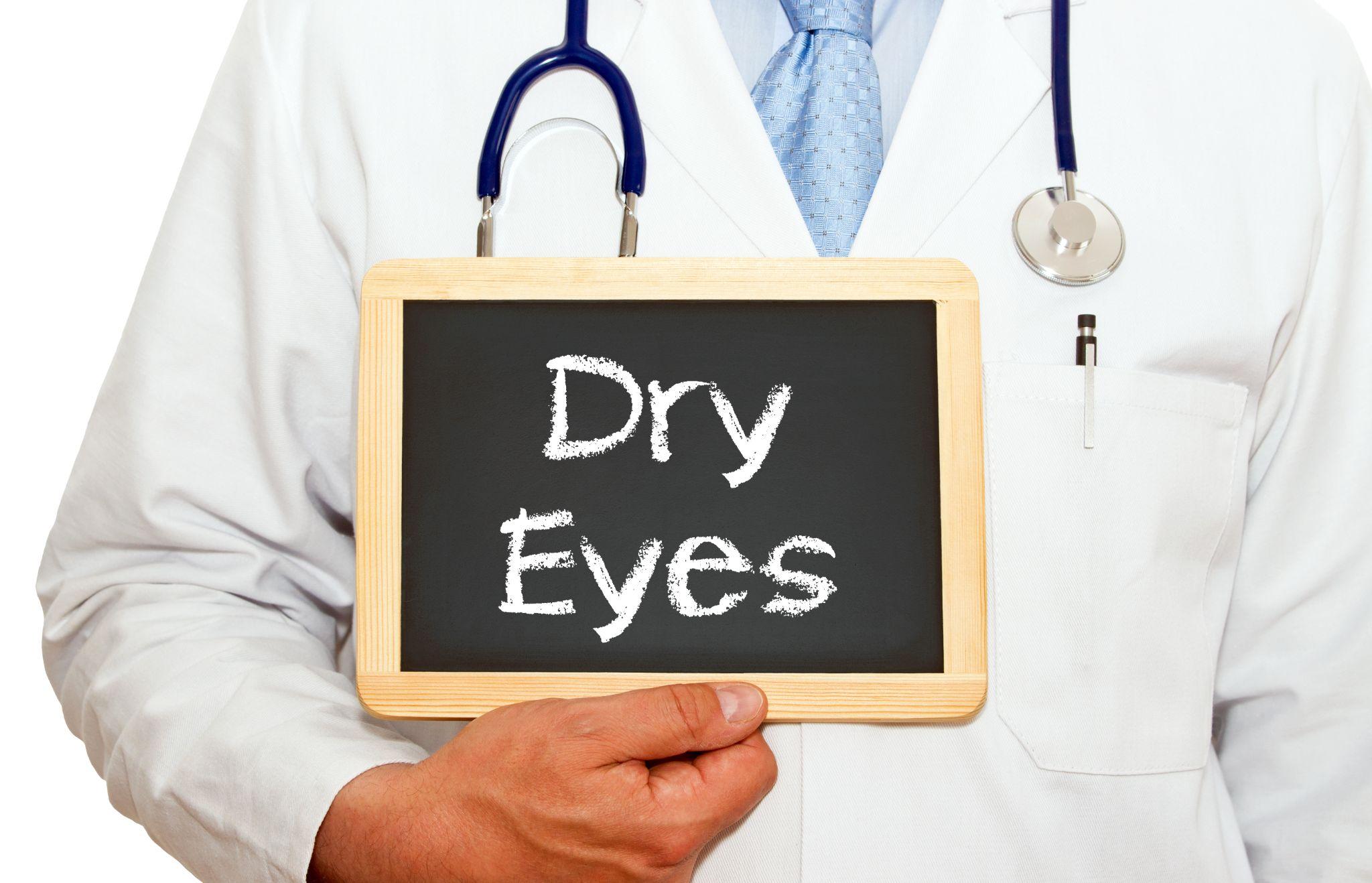“Doc, my eyes can’t be dry, because they’re always watering!” This is the one of the most common statements I hear in the clinic when I tell a patient their eyes are dry.
Dry Eye Symptoms
- Itching
- Scratchy
- Gritty
- Burning
- Stinging
- Blurred vision
- Fluctuating vision
- Watery eyes
- Filmy vision
- Mucus buildup
- Red eyes
- Unable to wear contacts
The list goes on and on and we always end up at Dry Eye. So what is Dry Eye? First we must take a look at the composition of our tear film.
The Three Layers of Tear Film
The tear film is made of three layers that serve a different purpose.
The oily or lipid layer is responsible for providing a smooth surface to the tear film and preventing the tear film from evaporating too quickly. The oil is made in the meibomian glands.
The mucous or protein layer is on the inner portion of the tear film and helps spread the tear film evenly over the surface of the eye. It also helps the tear film stick to the eye. The mucous layer is formed by the goblet cells of the conjunctiva.
The watery or aqueous layer is produced by the lacrimal gland. It is responsible for cleaning the eye and washing away unwanted material. It also provides volume to the tear film so it can be spread evenly over the eye each time we blink.
Dry eyes can be caused by a deficiency of any of the three layers of the tear film.
According to the American Academy of Ophthalmology, people tend to make fewer tears as they get older due to hormonal changes and this is more common in women, especially those who have gone through menopause.
Other Causes of Dry Eye

- Many autoimmune diseases, such as rheumatoid arthritis, Sjögren’s syndrome, thyroid disease, and Lupus
- Blepharitis (when eyelids are swollen or red)
Rosacea - Entropion (when eyelids turn in); ectropion (eyelids turn outward)
- Being in smoke, wind or a very dry climate
- Looking at a computer screen for a long time, reading and other activities that reduce blinking
Using contact lenses for a long time - Having refractive eye surgery, such as LASIK
- Taking certain medicines, such as:
- Diuretics (water pills) for high blood pressure
- Beta-blockers, for heart problems or high blood pressure
- Allergy and cold medicines (antihistamines)
- Sleeping pills
- Anxiety and antidepressant medicines
- Heartburn medicines
It’s important to let us know about all the prescription and non-prescription medicines you take as these may be causing your dry eyes.
How is Dry Eye Treated

Most of the time your doctor will start with conservative treatment. This may include artificial tears which are specially formulated to provide lubrication and moisturization to the eye; hot compresses, which stimulate the meibomian glands to create healthier oil and can unclog the glands themselves; and dietary changes such as increased water intake.
Many patients will need to have more aggressive treatment options such as the following:
- Prescription drops – to reduce the amount of inflammation produced with Dry Eye
- IPL laser treatment – to eliminate rosacea and inflammatory bacteria
- Radiofrequency thermal treatments – to melt stagnant oil in the meibomian glands and rejuvenate the surrounding tissue.
- Serum tears – used to take advantage of the natural anti-inflammatory properties of our blood and promote healthy corneal nerve growth
- Eyelid cleaners – to reduce blepharitis and the buildup of harmful bacteria
Always remember that Dry Eye has many symptoms and can often be difficult to treat.
Georgia Eye specializes in using all of the above modalities to create a customized plan for you. Give us a call so that you can stop living with Dry Eye and start seeing your world in focus!

